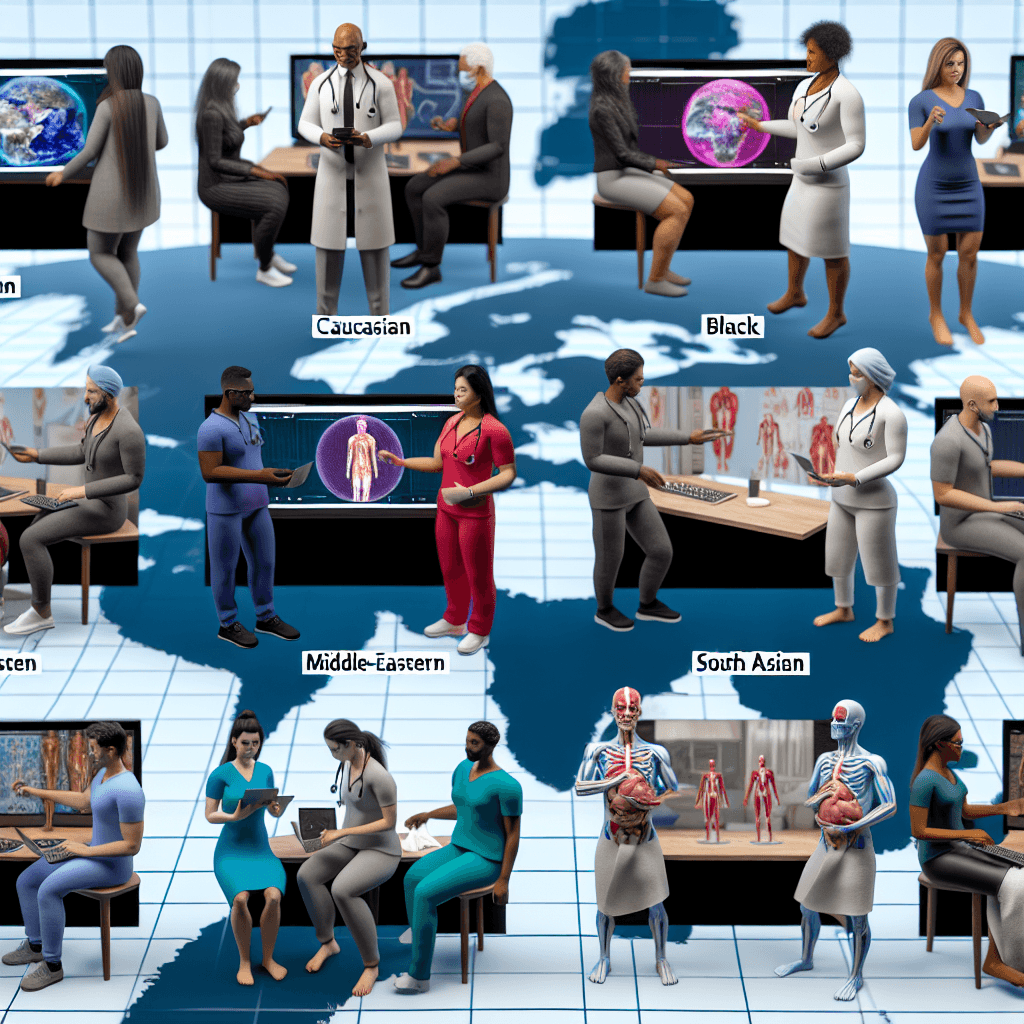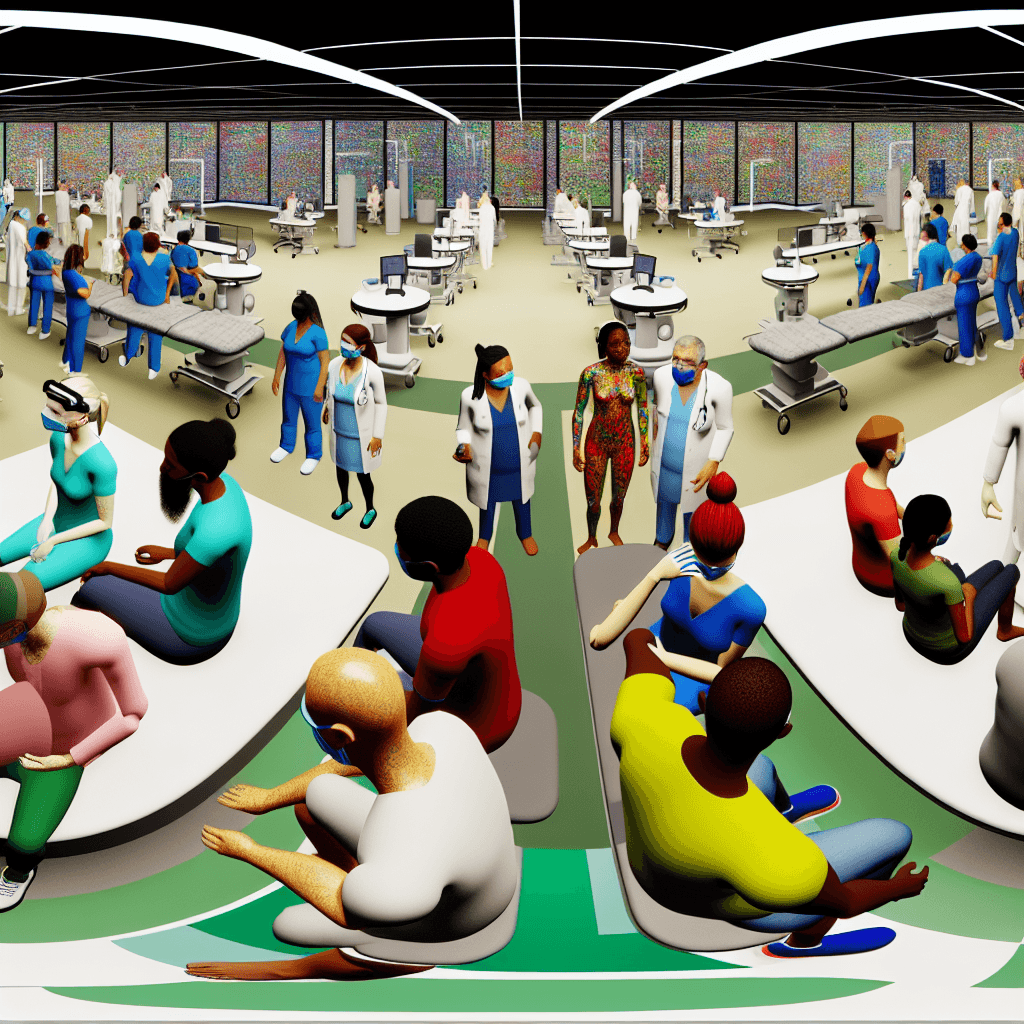Explore the expanding role of the metaverse in healthcare, enhancing patient care and medical training globally.
Global Metaverse In Healthcare Market

Table of Contents
- Exploring the Global Metaverse in Healthcare Market
- Understanding the Metaverse in Healthcare
- Current Applications and Benefits
- Virtual Reality (VR) Treatments
- Telemedicine and Remote Consultations
- Medical Training and Education
- Case Studies Highlighting the Impact
- Case Study 1: VR Therapy Sessions
- Case Study 2: Remote Surgical Assistance
- Market Growth and Statistics
- Challenges and Considerations
- Future Prospects
- Conclusion: Key Takeaways
Exploring the Global Metaverse in Healthcare Market

The concept of the metaverse is rapidly evolving from a futuristic idea into a practical tool across various industries, including healthcare. This article delves into the global metaverse in healthcare market, exploring its potential, current applications, challenges, and future prospects.
Understanding the Metaverse in Healthcare
The metaverse in healthcare refers to a collective virtual shared space, created by the convergence of virtually enhanced physical and digital reality. It is persistent and provides an enhanced immersive experience. In healthcare, this technology is used for treatment, training, and to improve the overall quality of medical services.
Current Applications and Benefits
Virtual Reality (VR) Treatments
One of the most prominent applications of the metaverse in healthcare is through VR-based treatments. VR environments are used to manage chronic pain, anxiety, and post-traumatic stress disorder (PTSD). They provide a controlled environment where patients can confront their conditions in a safe manner.
Telemedicine and Remote Consultations
The metaverse also enables telemedicine services, where doctors and patients interact in a virtual space despite being miles apart. This is particularly beneficial for rural or underserved regions where access to healthcare professionals is limited.
Medical Training and Education
Medical students and professionals can benefit from realistic simulations and training environments within the metaverse. These tools help them to practice surgeries and other medical procedures without the risk associated with real-life training.
Case Studies Highlighting the Impact
Case Study 1: VR Therapy Sessions
A notable example is the use of VR therapy sessions to treat PTSD in veterans. Programs such as Bravemind have shown significant success by allowing patients to re-experience traumatic events under controlled conditions, which can reduce anxiety over time.
Case Study 2: Remote Surgical Assistance
Another application is in remote surgical assistance, where surgeons can collaborate in real-time through virtual representations, despite being in different locations. This was notably demonstrated in a telesurgery procedure where a surgeon in the U.S. assisted a team in France.
Market Growth and Statistics
The global metaverse in healthcare market is experiencing rapid growth. According to a recent report, the market is expected to reach billions by 2030, growing at a compound annual growth rate (CAGR) of over 35%. This growth is driven by the increasing demand for better healthcare services and the continuous advancements in technology.
- North America currently leads the market due to its advanced healthcare infrastructure and high adoption of new technologies.
- Asia-Pacific is expected to witness the fastest growth due to increasing healthcare expenditures and technological advancements in countries like China and India.
Challenges and Considerations
Despite its potential, the integration of the metaverse in healthcare faces several challenges:
- Data Privacy and Security: Handling sensitive patient data in the metaverse raises significant concerns regarding data privacy and security.
- High Costs: The initial setup and maintenance costs for metaverse technologies can be prohibitively high, especially for underfunded healthcare systems.
- Technological Limitations: Current technological limitations, such as latency issues and the need for high-end hardware, can hinder the widespread adoption of metaverse applications in healthcare.
Future Prospects
The future of the metaverse in healthcare looks promising with ongoing advancements in technology and more widespread acceptance of virtual healthcare services. Innovations such as improved VR headsets, better data security measures, and more realistic simulations are expected to drive further growth in this sector.
Conclusion: Key Takeaways
The integration of the metaverse into healthcare is transforming the industry by enhancing medical training, providing innovative treatment options, and facilitating remote healthcare services. While there are challenges to overcome, particularly in terms of technology and security, the potential benefits offer substantial improvements in healthcare delivery. As technology continues to evolve, the metaverse is likely to become an integral part of the global healthcare system, offering more immersive, efficient, and accessible care for all.
In conclusion, the global metaverse in healthcare market is set for significant expansion. Stakeholders in the healthcare industry should consider investing in this technology to improve service delivery and patient care. With careful consideration of the challenges and strategic implementation, the metaverse can greatly enhance the effectiveness and reach of healthcare services worldwide.








